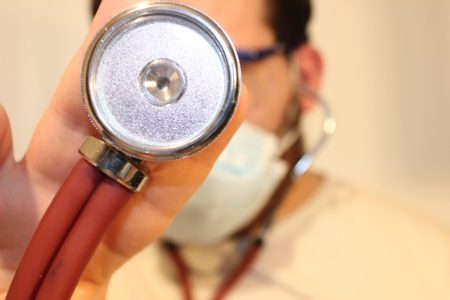
Failure to follow up on diagnostic testing can lead to complications with medical conditions, as well as patient injury and death.
Diagnostic Testing Errors Can Be Fatal
Medical negligence can occur in a variety of ways. In some cases, negligence is obvious when a patient suffers harm from a missed diagnosis, a wrong medication, or an improperly performed surgical procedure. However, when diagnostic testing slips through the cracks, medical negligence may be much less obvious. When a medical professional fails to follow up on a patient’s diagnostic test results, the patient can suffer injury, even death, that arises from prolonged illness or disease and serious health complications.
Medical research studies show that patients’ diagnostic test results are often reported incorrectly or not reported at all. Medical professionals responsible for diagnostic testing often fail to do the following:
- Review test results in a timely manner
- Report an accurate diagnosis
- Follow up with patients on their test results
- Order follow-up testing and examinations
- Schedule necessary treatments and procedures
- Prescribe necessary medications
Any one of these diagnostic errors can threaten a patient’s health and result in patient harm. Without proper medical actions, a patient’s health condition may be misdiagnosed and/or left untreated, resulting in injury and/or death to the patient. According to medical experts, diagnostic testing errors are a leading cause of misdiagnosis, as well as patient injuries that lead to medical malpractice lawsuits filed by medical negligence lawyers.
Diagnostic and Screening Test Procedures
Most medical testing procedures are divided into four main categories – diagnostic tests, screening tests, laboratory tests, and image tests. These types of testing procedures are commonly used to diagnose patient illnesses and diseases. Whichever type of test is used, testing requires follow-up by medical professionals to ensure proper patient care.
Diagnostic Tests
Diagnostic tests are commonly used to confirm or rule out certain health conditions and diseases. Tests are routinely given to patients who exhibit signs or symptoms of illness and/or diseases such as lung and respiratory problems, cardiovascular disease, strokes, and certain types of cancers. Diagnostic test results are used to get a medical diagnosis.
Screening Tests
Screening tests are used to look for problems in patients that are considered high-risk for developing certain illnesses and diseases. Common screening tests include mammograms, ultrasounds, fertility testing for women, and prostate scans for men. Positive screening test results indicate suspicion or possibility of disease that warrants further investigation, not a medical diagnosis.
Laboratory Tests
Laboratory tests are usually administered in a medical facility or medical lab. Laboratory testing is routinely done to collect a patient’s blood, urine, or tissue samples. Test results are used to detect problems with a patient’s blood pressure, cholesterol levels, insulin levels, and functions of major organs like the liver, kidneys, thyroid, and pancreas.
Image Tests
Image tests produce visual images of certain body parts and internal organs. Image tests include X-rays, MRIs, CT scans, and ultrasound procedures. They are commonly used to diagnose a variety of conditions including broken bones and fractures, joint problems, torn ligaments and pulled muscles, head trauma, brain injuries, and pregnancy.
While screening, laboratory, and image tests are simple and less invasive, diagnostic tests are necessary to establish a definite medical diagnosis. In some cases, medical negligence lawyers see patients who were given the wrong tests, resulting in inaccurate or inconclusive diagnosis. Misdiagnosis or inconclusive diagnosis can lead to injury or the death of a patient with a serious illness or disease.
Filing a Medical Malpractice Lawsuit
Diagnostic errors account for a large percentage of patient injuries within the U.S. healthcare system. Major diagnostic errors are found in up to 20% of autopsies, indicating that each year 40,000 to 80,000 patients in America die from diagnostic errors. Patient surveys confirm that one in three Americans have firsthand experience with diagnostic errors, accounting for a large percentage of serious patient injuries and medical malpractice claims seen by medical negligence lawyers.
Patients who suffer injuries caused by diagnostic testing errors and lack of proper treatments can file a medical malpractice lawsuit with a medical negligence lawyer. While some diagnostic and testing errors may not cause patient harm, others may lead to long-term or permanent health complications, severe injuries, and death.
Medical negligence lawyers in Chicago often see diagnostic testing errors caused by the failure of medical facilities and/or technicians to follow proper test procedures; failure to properly document patient test results; failure to send test results to physicians in a timely manner; and inadequate patient tracking systems reported by 32% of medical professionals.
According to medical negligence lawyers, almost 80% of medical malpractice lawsuits are related to communication problems between medical professionals and their patients. Within the last 10 years, failure to notify patients of misdiagnosis, health complications, and diagnostic test results has increased legal costs in the U.S. by approximately $70 million.

